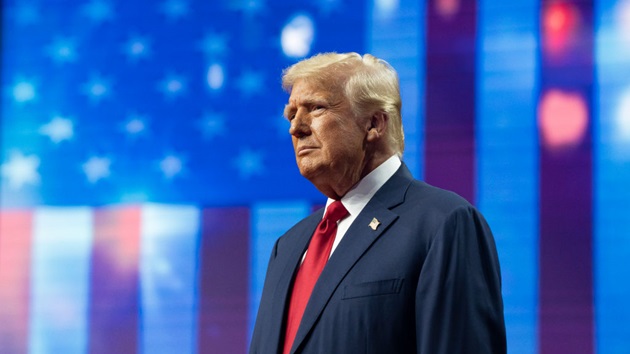
(WASHINGTON) — Once dubbed the longest general election ever, the 2024 presidential race has been flipped on its head.
A rapid ticket shuffle in the Democratic Party means what is typically a year of campaigning will be boiled down to just 10 weeks as newly-nominated Vice President Kamala Harris and former President Donald Trump hit the trail after their party conventions.
Harris will be looking to maintain her momentum and Trump, in turn, will try to blunt any further progress for Democrats after President Joe Biden’s decision to step aside resulted in a significant energy shift.
“What the Harris campaign did was bring polling back to normal, and normal in a polarized age means dead heat races nationally,” Whit Ayres, a Republican pollster, told ABC News. “Now we have what’s clearly a tied race going forward.”
Next up as the race kicks into high gear, Ayres said, will be a laser-focus on the handful of swing states that will determine the electoral college winner — an area where Trump’s generally had the upper hand this cycle.
Harris this week is campaigning with her running mate, Gov. Tim Walz, in Georgia for the first time. Trump is ratcheting up his appearances with stops in Michigan, Wisconsin and Pennsylvania.
The shorter campaign generally favors Harris, strategists on both sides of the aisle said, but still presents challenges for both candidates.
“The compressed calendar has reduced the surface area of attack for the Trump campaign,” said Kevin Madden, a Republican strategist who worked on Mitt Romney’s 2008 and 2012 presidential campaigns. “Having to navigate a 100-day window of scrutiny is preferable to having to endure a year’s worth of attacks from your opponents.”
It also makes it likelier Harris can keep the momentum last until Americans begin casting their ballots, which in some places starts as early as late September.
“They’re peaking at the right time,” Democratic strategist Antjuan Seawright said of the Harris-Walz ticket. “And that’s what you want to do in politics because the worst thing you can do — and Trump may be suffering from this — is peak too soon.”
Still, it means less time for Harris to deliver her message to voters, who may have questions about where she stands on certain policies given her limited agenda rollout since her late entry as the nominee. Trump, meanwhile, has name recognition and legislative positions stretching back nine years.
“It’s harder for the Harris campaign to get her policies out in a short campaign,” said Douglas Herman, who led Barack Obama’s mail strategy in 2008 and 2012. “It’s harder to fill in all of the details in a short campaign.”
“The major objective for the Harris campaign is to continue to put meat on the bones for the voters,” Herman added.
Plus, if any serious blunders are made, there is less time for Harris to bounce back.
Her next big test will be her promised interview since becoming the nominee. No date has been set, though Harris said she would get her team to schedule an interview before the end of the month.
“The real risk of Harris avoiding the media for an extended period of time is first, it can’t go on forever,” said Madden. “And second, it just builds up anticipation for that first interview or press conference and turns it into a major event. That just creates added pressure on the performance.”
Then next month, Harris and Trump will meet for their first debate hosted by ABC News. The showdown, set for Sept. 10., will be held at the National Constitution Center in Philadelphia.
There will also undoubtedly be unknown external factors that will impact the campaigns over the next 70 days.
“This race is so close now that I can’t help but believe it’s going to be decided by events that haven’t happened yet,” said Ayres. “When we think back on what’s happened over the last six weeks, it’s a fool’s errand to try to predict what might happen over the next six or 10 weeks.”
Copyright © 2024, ABC Audio. All rights reserved.
